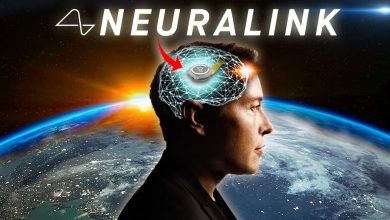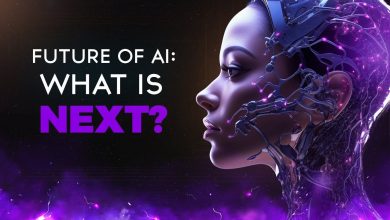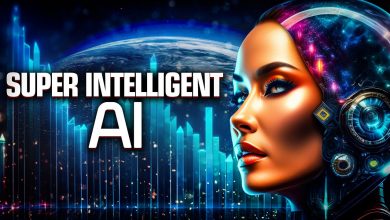Transhumanism: Our Path to Artificial Immortality
Transhumanism is a philosophical and cultural movement that advocates for the use of technology to enhance human abilities and transcend the limitations of the human condition.
 Transhumanism is a philosophical and cultural movement that advocates for the use of technology to enhance human abilities and transcend the limitations of the human condition.
Transhumanism is a philosophical and cultural movement that advocates for the use of technology to enhance human abilities and transcend the limitations of the human condition.
It is based on the belief that humans can and should use science and technology to improve themselves and create a better future for all.
Transhumanism
The term “transhumanism” was first coined by Julian Huxley in 1957, but the concept of using technology to enhance human abilities has been around for centuries.
The idea of human augmentation can be traced back to ancient myths and legends, such as the Greek story of Icarus who flew too close to the sun with wings made of feathers and wax.
In the 20th century, the concept of transhumanism gained more attention with the development of new technologies, such as prosthetic limbs and artificial organs. The first transhumanist organization, the World Transhumanist Association, was founded in 1998.
Transhumanism is based on the belief that humans can and should use technology to transcend the limitations of the human condition. This includes enhancing physical and mental abilities, extending lifespan, and even achieving immortality through technologies such as mind uploading and cryonics.
Transhumanists also believe in the importance of ethical considerations and social responsibility in the development and use of technology. They advocate for the democratization of technology and the elimination of social and economic inequalities that could arise from unequal access to technological enhancements.
AI Will Turn Humans into Gods
One of the claims made by some transhumanists is that AI has the potential to turn humans into gods. Transhumanists believe that through the integration of AI and other technologies, humans can transcend their biological limitations and achieve god-like abilities.
AI plays a crucial role in the transhumanist vision, as it is seen as a tool that can exponentially increase human intelligence and enable us to overcome our biological limitations.
In this interview John Lennox, a professor of mathematics and philosophy of science at the University of Oxford, has expressed skepticism towards the transhumanist claim that AI will turn humans into gods. Lennox argues that this claim is based on a flawed understanding of what it means to be human and what it means to be God.
Lennox believes that humans are unique beings created in the image of God, with inherent dignity and value. According to him, the idea of humans becoming gods through AI undermines the concept of human identity and the significance of our relationship with the divine.
Lennox also raises ethical concerns regarding the potential consequences of pursuing the transhumanist agenda. He argues that the pursuit of god-like abilities through AI could lead to a devaluation of human life and the erosion of moral values. Additionally, he questions the feasibility of achieving such god-like abilities, suggesting that it may be more of a fantasy than a realistic possibility.
Critique of the Transhumanist Claim
Lennox’s critique of the transhumanist claim is multifaceted. He questions the assumption that AI can truly replicate human consciousness and intelligence, pointing out that there are fundamental differences between human and artificial intelligence.
Furthermore, Lennox argues that the transhumanist claim overlooks the spiritual dimension of human existence. He believes that humans possess a soul that cannot be replicated or replaced by AI, and that our ultimate purpose and fulfillment lie in a relationship with God, rather than in the pursuit of god-like abilities.
John Lennox’s views on the transhumanist claim that AI will turn humans into gods are rooted in his understanding of human nature, identity, and the divine. He raises important philosophical and ethical questions, challenging the feasibility and desirability of pursuing god-like abilities through AI.
While the debate between transhumanists and critics like Lennox continues, it is clear that the implications of AI on human existence and the nature of our relationship with technology are profound and warrant careful consideration.
 The Quest for Superhuman Abilities
The Quest for Superhuman Abilities
In this interview futurist Humanist Gerd Leonhard also discusses the fascinating intersection of artificial intelligence (AI), transhumanism, and the quest for superhuman abilities.
Leonhard, known for his thought-provoking insights into the future of technology and humanity, shared his perspective on how these areas are shaping our world and what it means for the future of humanity.
He emphasizes the rapid advancements in AI and its increasing presence in our daily lives, discussing how AI is being used in various industries, from healthcare to finance, and its potential to revolutionize the way we work and live. However, he also highlighted the ethical concerns surrounding AI, such as job displacement and privacy issues.
Leonhard delved into the concept of transhumanism, which involves using technology to enhance human abilities beyond their natural limitations. He discussed the potential benefits of technologies like brain-computer interfaces and genetic engineering, but also raised questions about the ethical implications and the potential divide between those who can afford such enhancements and those who cannot.
Exploring the potential for humans to augment their intelligence, physical capabilities, and even extend their lifespan through advancements in technology, he also cautions against the pursuit of superhuman abilities without considering the impact on our humanity and the potential loss of what makes us human.
Highlighting the need for a thoughtful and ethical approach to the integration of AI and transhumanism into society, he emphasizes the importance of considering the potential consequences, such as widening inequality and loss of privacy, and the need for regulations and policies to ensure that these technologies are used for the benefit of all. He also stressed the importance of maintaining human values and empathy in a world increasingly driven by technology.
Conclusion
In conclusion, Gerd Leonhard’s interview shed light on the exciting possibilities and challenges presented by the intersection of AI, transhumanism, and the quest for superhuman abilities. While these advancements hold great potential, it is crucial to approach them with careful consideration of their impact on society, ethics, and our shared humanity.



